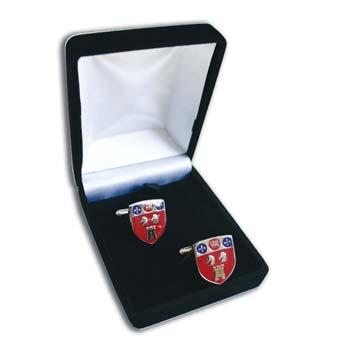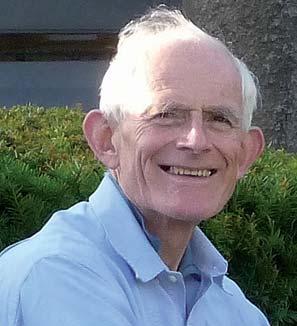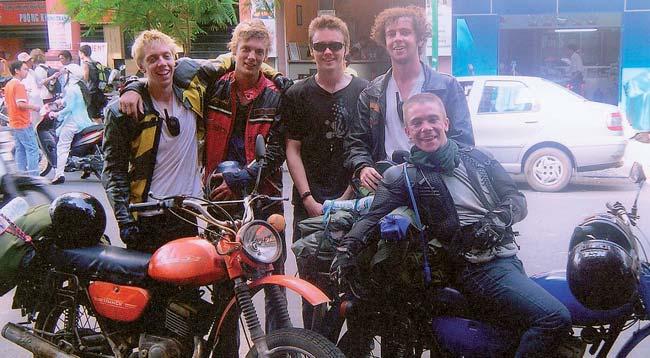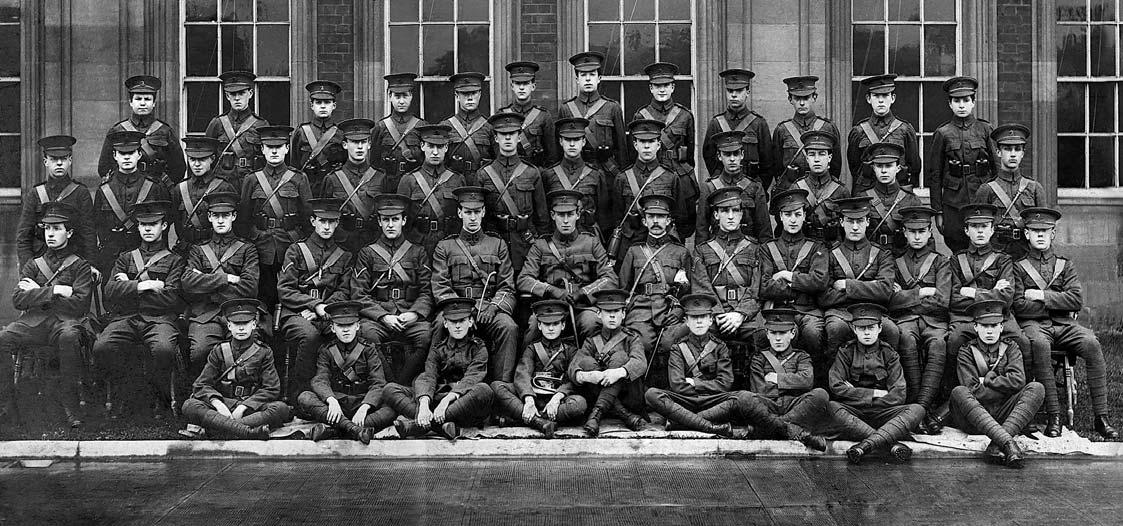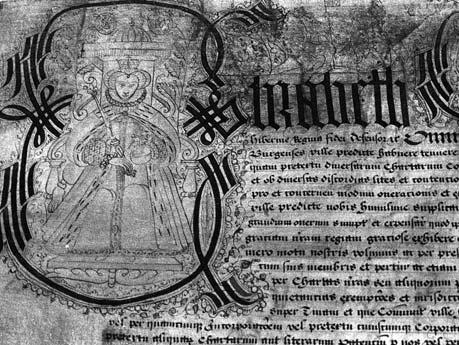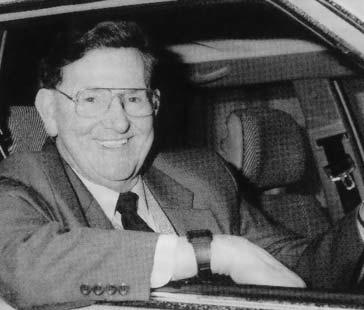
16 minute read
Obituaries
from ONA 81
Colin Nichols
RGS Master 1953-1986 Arrived at RGS 1953, appointed Second Master 1967. Retired 1986. Died October 2010, aged 84.
Advertisement
It may look bad if the author of this tribute to Colin Nichols starts with a word about himself, but it will soon bring me to the very essence of what I want to say. I have to admit that, since my retirement from the RGS Headship in 1994, I have so buried myself in a ‘new life’ in France that my former friends and colleagues in Newcastle may simply assume (wrongly but understandably) that I have ‘lost interest’ in those 22 years of my life. Worse, I have been remiss in failing to react to the death of colleagues for whom I had the highest respect, and whose families have good reason to think badly of me. I hope and believe however that they’ll understand why the news of the death of Colin Nichols immediately punctured my posture of detachment. Distant though I was, I just had to hear from former colleagues who attended his funeral, and (for once) I lost no time in getting a message to Betty about what her husband had meant to me. My mind had meanwhile been flushed with strangely vivid images of those days in 1972 (precisely half my lifetime ago) when I first entered the orbit of the RGS.
If this was a ‘hinge’ in the social history of the school, any detailed examination of it will show up the central role (yes, central, not subsidiary) which Colin Nichols as Second Master played out with such finesse. If there was continuity amidst a welter of change, Colin was the core of it, such was his gift for reading situations and reacting wisely to them. For situations I think I mean Headmasters! My predecessor Bill Haden was probably well equipped to handle the intergenerational battles of the 1960s, being himself a hardened battler, ready to take a hard line with ‘troublesome youth’ and equally unafraid of alienating those of his own staff whom he regarded as ‘feeble’. They were turbulent years at the RGS, and Colin had fulfilled his role of ‘interpreting’ HM to staff (and vice versa) with discretion aplomb – before deploying the same interpersonal skills in the less explosive context of the 1970s and of a new HM who was a classic case of being chosen for being different. The pattern of joint-management which developed between us was not unlike that of the ancient Roman consuls – two of them, each with a power to block the other’s initiatives. Rarely did I proceed down paths which did not seem sensible to Colin, and (to say the least) this required courage and in some cases a readiness to wonder if I had it wrong!
There were tensions of all sorts to be eased (the Sixth Form to be allowed more adult freedoms, the ‘fliers’ stream to be declared no longer fit for purpose, managerial responsibilities to be spread more widely across the staff), and Colin was for me the perfect ally in bringing such things about, often being one jump ahead in what needed to be done. It’s true that he regarded ‘principles’ with worldly cynicism, but his pragmatism was laced with admirable priorities which he would occasionally spell out – for example that ‘ease of administration’ (for which he had a gift) should never be an end in itself. All his dealings at every level had the human touch. It says much for Colin that he switched with seemingly effortless ease from being my ‘rival’ for the Headmastership to being a stalwart ally and advisor. You could say without exaggeration that the RGS got two for the price of one.
To earn respect within the RGS community it’s as well to have a stake in both the academic and the sporting or extra-curricular world. Colin’s dual credentials had been forged in the fires of Cambridge geography and rowing – and what better guarantees are there of rigour on the intellectual and the physical side? His role as Head of Geography needs particular mention: it would be hard to explain the deep-rooted attachment of the RGS to this multi-faceted discipline without reference to his input. It’s true that he wore his intellectualism lightly, but one quickly learned that his poised posture on every vexed question was not just instinctive but thought out.
Colin’s emotional equilibrium, which could never be faulted, depended in part on his commitment to ‘life beyond school’. My first lesson from him on this was before I ever started: to my question whether I could perhaps meet my future colleagues on the day before term began, the answer was a courteous yes, but a hint that I should not make a habit of it! His own use of time during the school day was organised in such a disciplined and systematic way that I’m sure he reckoned on taking home with him the absolute minimum not only of the paper-work but of the ‘worries’ which went with it. His home was a haven and a fortress, manned by that remarkable duo of Deputy Heads who had a way of converting the chores into pleasures (Betty as proud of Colin’s cooking as of her own!), and whose habit of many a weekend was to drive in the comfort of their cherished Volvo to their equally cherished rural retreat in Forest Head. A privileged circle of good friends shared these unpretentious pleasures with them, and will have been amongst those who found no surprise in the ailing Colin’s insistence on getting over there ‘just once more’. It did prove to be the last time.
I hope it will be clear from these unashamedly personal remarks what I owed to Colin Nichols – and, more important, what the school owed to this formative figure in its twentieth century history. Old Novocastrians who read this will see at once what a mass of appreciative detail I have left out. For them to fill it in!
Alister Cox RGS Headmaster 1972-1994
Obituaries
Donald Peden
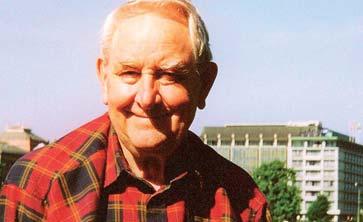
RGS Master 1953 - 1988 Born 1928, died 29 September 2010, aged 82.
Don (as he was known by everyone in the Common Room) was appointed to the staff by Oliver Mitchell in 1953 to teach mathematics and rose to second within this highly prestigious department. He had previously served in the Army before graduating with a BSc from King’s College, Newcastle and acquiring his Diploma of Education.
Having played football in the Army and qualified as a football coach, he was very suitably placed to enter the general life of the school and was soon coaching rugby, playing cricket with the Staff XI and involving himself in various rock- climbing expeditions. During Race Week, he ran successful school camps in Teesdale, Dentdale and Ribblesdale. Perhaps his greatest contribution to out-ofschool activities was as master in charge of chess, which he fulfilled for over twenty years, becoming regional Controller of the Sunday Times Chess Tournament. P B (Bev) Gelder (40-47) Died 22 September 2010, aged 80. Bev Gelder died a few days after his 80th birthday, having lived a full and busy life until age and infirmity caught up with him, causing him much frustration. At school he gained his swimming colours, and blossomed as a pianist, giving a number of solo performances, but in later life he played only for pleasure, indulging his catholic taste. Subsequently he developed a very hands-on Mathematics remained his main interest and in 1962, was awarded his Master of Science degree in Pure Mathematics for his thesis “Limiting Behaviour of Harmonic Functions”.
He became a Fellow of the Institute of Mathematics and a member of the Council of the Mathematics Association. Later, he became chairman of the Programme Committee, responsible for planning the Association’s Annual Conferences.
Don’s organisational skills and experience had not gone unnoticed at school, as he was appointed master in charge of both internal and external examinations, a post which he held from 1960 to 1986. This was both a mammoth and complex task which he played like a finely tuned military operation (woe betide anyone who would dare to question their apportion of invigilation).
Following his service in the Army, Don joined the TA and was a member from 1949 to 1969, ending as Regional Signal Officer for this region and in this capacity, he examined RGS cadet signallers which would certainly have assisted in maintaining high standards. He was awarded the Territorial Decoration and clasp and retired with the rank of Major. Don was also a Past Master of Reserve Forces Masonic Lodge.
It was in 1970 that Don became aware of his growing lack of mobility which was later diagnosed as MS. He moved skilfully round school on his arm crutches and his timetable bakery business, starting with a single shop in Ponteland, which eventually expanded to eight. Keenly interested in motor sport, he did a lot of rallying, and scored some successes. He was even happier on water, owning successions of boats, and hankering for another even during the last months of his life, despite his incapacity. Some of his happiest times were those spent with Pat at their apartment on Majorca, where they made many friendships. was so arranged as to take place on the ground floor. It is worthy of note that he was never known to have complained of his lack of mobility.
Don retired in 1988, following 35 years of loyal service to the Royal Grammar School to enjoy his hobbies of reading and listening to music and eight years later, both he and Moira moved to a spacious cottage in Acklington, with ample access for a wheelchair. He maintained his independence and drove about in his specially adapted car enjoying both the countryside and making as many stops for coffee and/or lunch as possible.
On occasions, he would book an electric wheelchair within Eldon Square and whilst Moira would go in one direction, Don would move in the opposite direction, browsing and generally enjoying both his independence and shopping expedition.
Donald passed away (suddenly) and peacefully at his home in Acklington on Wednesday 29 September 2010, aged 82 years. Following a private cremation, a Service of Thanksgiving was held at St. John the Divine, Acklington which was very well attended. Donald leaves his wife Moira, four children, Gillian, Allison, Andrew (74-81), Fiona and four grandchildren.
W.G. (Bill) Elliott
member of staff 1952-1988. He took up golf when still quite a small boy and this was an enduring joy. Latterly he played at Matfen Hall, despite finally having to resort to a buggy. It was fitting that he should have passed away on Majorca suddenly and without pain, and appropriate that his ashes was scattered from the quayside which had formed the backdrop for so many memorable holidays.
Bryan Stevens (44-49)
Michael Anthony Read (47-50)

Born 1931, died 21 August 2010, aged 78.
Michael Anthony Read died at Carter Bequest Hospital, Middlesbrough after a short illness. His cremation took place on the 27 August followed by a moving humanist ceremony at home with family and friends, to celebrate Tony’s life.
Tony Read was born on 24 November 1931 in Keighley, West Yorkshire to Mari and Arthur Read and brother to Elizabeth. He attended Keighley Grammar school but when the family moved to Newcastle in 1947, he transferred to the Royal Grammar School.
He was bright and gifted but enjoyed life too much to limit himself to academic matters alone, skipping French lessons sometimes to play snooker and billiards. In fact on his final term’s report from school it read, “The only thing that’s improved in Read’s last term is his snooker and billiards which he played whilst the Head was teaching.”
Undeterred, Tony went on to put his considerable social skills to great use: he became a very successful property salesman and was always a first class conversationalist, full of charm, with a great sense of humour and very popular. He was a good rugby player and played hooker for RGS, and subsequently played for the Old Novos.
He married Pauline Wood in 1963 and moved to Middlesbrough where he lived with Pauline and his stepdaughter, Pam. Pauline died in 2009 and Tony’s sudden death left a deep sadness with Pam, and Tony’s 18 yearold grandson, Jackson.
His family paid this tribute to him: Tony’s death leaves much sorrow, but we can honour him and his enjoyment of his life as well as the contributions he made to all our lives. He leaves a legacy of warm memories; his good nature and human value to all who were close to him, and even strangers enjoyed his warm banter and good spirit, will live on. His loving influence will continue in those who loved him. You can all carry him with you in your hearts.
Philip Vernon (32-40)
Born 1928, died 3 September 2010, aged 87.
Philip Vernon was a keen sportsman. He played rugby, cricket and water polo. He also swam for the School. He was musical and played the flute in the orchestra under Arthur Milner.
At the outbreak of war, in 1939, he was among those evacuated to Penrith. Some years ago, he and his wife, Irene, attended several pleasant reunions for the ex-evacuees.
He served in the RAF from 1942 to 1946, mostly in India and the far east. Eventually he joined the Trustee Savings Bank (now Lloyds Bank) and served as Manager at Rothbury for six years and, subsequently in Leeds until his retirement in 1983. He married in 1953 and had a son and two grandsons.
Philip died peacefully, after some weeks in hospital, at the age of 87.
Irene Vernon
Arnold M. Danziger (formerly Arnold Morris) (36-40)
Born 1925, died 17 November 2010, aged 85.
Dr. Arnold Danziger was originally called Arnold Morris, but changed his surname to Danziger after graduating. Danziger was the original family name, but his father had changed it to Morris in response to anti-German sentiment during the First World War.
Arnold Morris (as he then was) spent his early years in Whitley Bay, attending the Royal Grammar School, first in Newcastle, and then after the school was evacuated during the war, in Penrith.
He read medicine at Caius College, Cambridge, matriculating in 1942 and spending two years in Cambridge under the accelerated wartime medical training scheme. After Cambridge he continued his medical studies at the London Hospital Medical School, and then after qualifying and completing his house jobs he spent two years as a Medical Officer in the RAF.
He then pursued a career in anaesthesia, becoming a consultant anaesthetist in the North Manchester Group of hospitals in the 1950s. In the ’50s and ’60s he published papers and letters on a number of areas in which he was interested, including the treatment of intractable haemorrhagic shock, the use of hypothermia in intracranial neurosurgery, and techniques to improve the safety of dental anaesthesia. His anaesthetic career was cut short by ill health in 1974, and he subsequently practised in other fields of medicine up to his retirement in 1985.
He married Patricia in 1959, and after her death in 2007 at the relatively young age of 68, his own health deteriorated. He leaves behind two children, Josh and Verity, and three grandchildren.
Obituaries
Ivor Saville (39-46)
Born 1928, died September 2010, aged 81.
Everyone who knew Ivor smiled when his name was mentioned and we mourn his loss. He was born in South Shields. At the outbreak of war he was evacuated with the school to Penrith, where we all benefited from the great headmaster E R Thomas and the kind principal of the junior school, Mr Anderson.
On leaving school Ivor intended to read geology and meteorology, but joined the RAF for his national service. Upon release he joined the family music business in Shields as his father had become ill. He and Lila married in 1954, and the business moved to Sunderland in 1965. He always enthused about his jazz and big band music.
Ivor became a devoted member of the Citizens Advice Bureau, joined the Marriage Guidance Council, and served as a Magistrate on the South Tyneside bench. His appointments included chairman of the medical appointments panel, and he was a conciliator for the local Health Authority. A very active member of the Jewish community, he was also a Freemason, and was a very strong supporter of all ExServicemen’s activities, always present on Remembrance Day parades.
Ivor was always a very devoted family man. He and Lila have three sons: Fraser, Leigh and Adam, and five grandchildren. A man we will always miss.
Colin Ross (40-47)
Francis (Frank) Robinson (46-57)
Born 1931, died 3 June 2010, aged 71.
Frank Robinson was instrumental in making historical and bibliographical sources of the 18th and 19th centuries accessible. He produced reference works in many formats but his greatest work was the Nineteenth Century Short Title Catalogue (NSTC), a bibliography of more than a million records, a subject classified, union catalogue of the 19th century holdings of big British and American libraries. It was bought by libraries worldwide.
Frank was born in Newcastle upon Tyne in 1938, where he was brought up by his great aunt and uncle. In 1944 he started school at Newcastle Church High, the only boy in that school. In 1948 he went down the road to RGS, where he particularly enjoyed studying military history, culminating in an open scholarship at Keble College in Oxford.
After Oxford he returned to Newcastle upon Tyne where he taught at Wharrier Street School, whilst also researching for his PhD thesis on education in the northern counties in the 18th century.
Later, Frank published guides to subscription lists, becoming Senior Research Associate on the Project for Historical Bibliography (PHIBB) at Newcastle University, funded by the publisher William Dawson. When the funding came to an end Frank set up his own publishing company, Avero Publications Ltd, publishing a variety of texts, including the Nineteenth Century Short Title Catalogue (NSTC), a project that would occupy Frank for the next 20 years.
As his health declined, Frank closed down Avero Publications in 2002, but in his retirement continued to compile data for subscription lists. He died of vascular disease in June 2010. He is survived by his wife Jennifer and their three children.
David Nicholson (47-55)
Born 1938, died October 2010, aged 71.
David was one of Britain’s most respected flautists and flute teacher. He was a driving force in founding the Scottish Chamber Orchestra in 1974 and served as its principal flute until his retirement.
After RGS he spent three years with the band of the Royal Artillery in Woolwich, London, before studying at Guildhall School of Music and Drama. He founded a variety of music groups, including the Edinburgh-based quintet The Amphion, and in 1997 established the Edinburgh Flute Course, which he directed until his retirement.
He was a music professor at the Royal Scottish Academy of Music and Drama (RSAMD) in Glasgow for more than 40 years.
He is survived by his wife Jo, his son and daughter, and a grandson.
Timothy Parkin (56-67) died 11 August 2010, aged 62.
Peter Gordon Lloyd (28-39) died 22 September 2010, aged 90. Represented the British Council in various countries, ending with Greece 1976-80. Author of The Story of Democracy.
Reverend Eric M T McLellan (28-35), died 2 October 2010, aged 94. After RGS, Eric attended St John’s College, Durham, and upon graduation went into the Anglican ministry. Eric never forgot his roots and was, until his wife died in 2001, a regular visitor back to the north east.
Ronald Ernest Hudson (36-42) died 20 October 2010, aged 82.
Robin S B Macro (50-61) died 8 October 2010, aged 68.
David Lucas (73-80) died 3 December 2010, aged 48.

